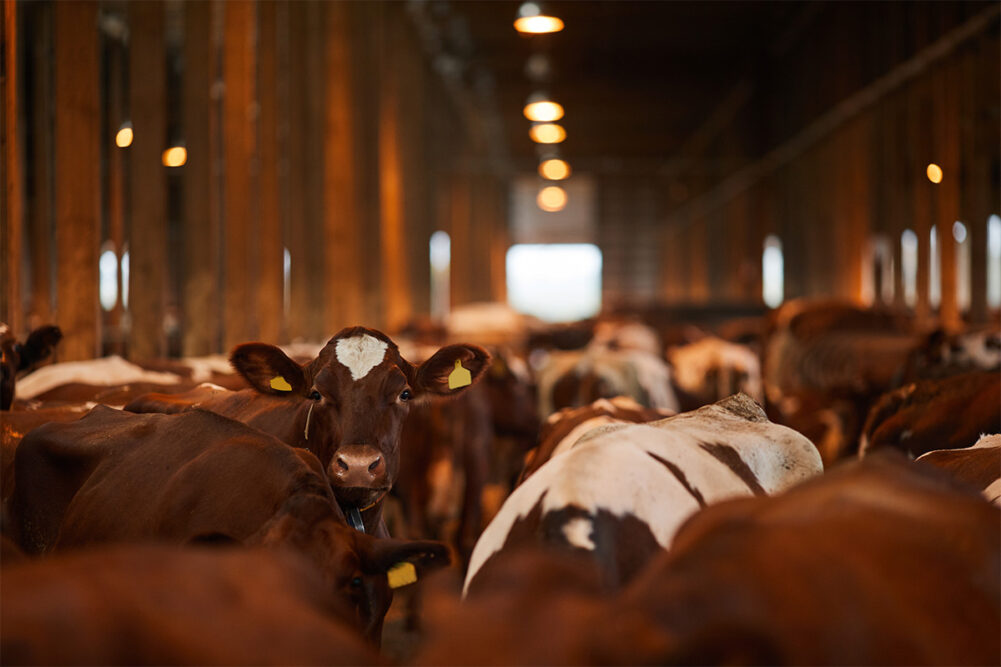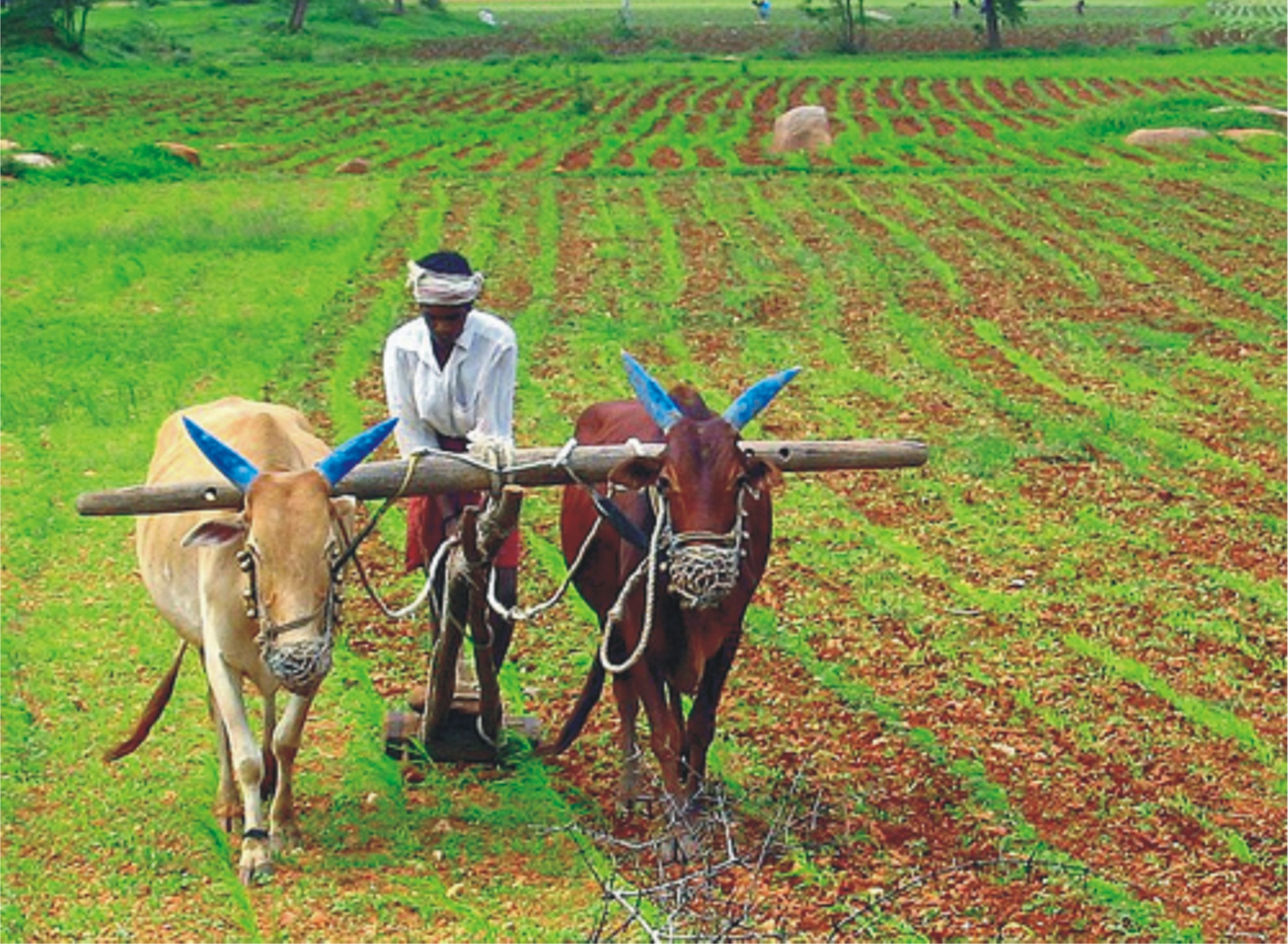Pradhan Mantri Fasal Bima Yojana (PMFBY), the flagship programme launched with much fanfare in 2016, has run into rough weather. With both the area covered and the number of enrolled farmers declining, the country’s premium crop insurance scheme is certainly in need of an overhaul.
While Parliament’s committee on estimates, chaired by senior Bharatiya Janata Party leader Murli Manohar Joshi, has in its latest report called for re-formulation of the agricultural insurance scheme, seeking transparency in its working and asking for more financial allocations to attract increasing participation from farmers, there are fundamental flaws in the design of the scheme that renders it rather ineffective. At a time when farm gate prices had remained subdued over the past few years, and when fluctuating climatic conditions—drought, floods, as well as freak weather patterns, including hailstorm and strong winds—had flattened the standing crop at many places, PMFBY could have come as the much-needed safety net. But a badly designed crop insurance programme has failed to come to the rescue of the beleaguered farming community. Take the case of Haryana, where standing crops on 1.85 lakh acres across 15 districts were damaged in September due to heavy rains and resulting floods. Interestingly, while the revenue estimates of the crop damage are ready, the crop losses suffered do not tally with the crops that were insured by the private crop insurance companies. This is because the insurance companies just collected the premium amounts from the banks without actually doing a ground assessment to know what crops were under cultivation. The government perhaps did not visualize that there were serious problems in the way the scheme was designed. The methodology itself was faulty. No wonder, some estimates show the enrolment under PMFBY has declined by 17%, from 40.2 million in 2016 to 33.2 million by 2018. Instead of rectifying the forcible enrolment, as a result of which the premium amount is automatically deducted from the bank accounts of loanee farmers, the banks have now been asked to provide the premium amount (in case of irregular accounts) by giving an overdraft for which the farmers will also have to pay interest. The basic objective was to show an increase in the number of farmers enrolled. Once the premiums are collected, a threshold limit is ascribed for the maximum claim in the event of a crop loss. In other words, if the threshold limit is low, the claim a farmer makes would get him a fraction of the loss he incurs. To illustrate, let’s look at an example from Bundli district in Rajasthan. A study conducted by the Centre for Science and Environment (CSE) had shown that for soybean crop farmers were insured for a maximum of ₹16,539 per hectare against a maximum output value of ₹50,000. Similarly for paddy, the maximum a farmer could be compensated for was ₹17,096 whereas the output value stood at ₹65,000. This is also linked to the process of auction that is adopted while estimating the losses to be insured. Companies first give their preference of the regions where they want to operate, and then an open bidding is held. As a result of selective bidding, the gross premium swells. Such a flawed system of estimating premium amounts does not operate anywhere in the world. I have never understood the rationale of treating village or village panchayat as a unit of insurance. Why can’t the compensation be paid treating the farm as a unit? Of course, the insurance companies would not like to undertake this arduous exercise, but at a time when remote sensing and drone technology are available, there is no reason why the insurance companies should not be directed to treat an individual farm as the base for insurance claims. Further, since 24 crop-cutting experiments are mandated for each district, four for major crops and eight for other crops, a total of 4 million crop-cutting experiments are required to be held every year. This could have been a huge employment generation opportunity if the government had insisted that the companies create its own workforce rather than allowing outsourcing of its agricultural officials for the purpose. But then, who wouldn’t like making profits without making adequate investments. Source - https://www.livemint.comIndia - Fundamental flaws in crop insurance scheme’s design makes it ineffective
17.01.2019 272 views
ScaleAgData Stakeholder Engagement Event
22.10.2024The ScaleAgData project is pleased to invite you to our second stakeholder event. Building on the discussions and connections formed during our first webinar, this event will focus on fostering collaboration among stakeholders, providing updates on our project’s progress, and outlining future opportunities for engagement.

Australia - Blueberry price spike due to low seasonal supply to ease, but flood damage will bite
Eye-watering blueberry prices could stay higher for longer this year due to seasonal shortages and crop damage caused by last month's torrential rain in northern New South Wales.

Egypt pursues stronger agricultural investment across Africa
Alaa Farouk, Minister of Agriculture and Land Reclamation, held a strategic meeting with a ministerial committee to explore ways of enhancing cooperation with African countries in the agricultural sector.

Call for stronger farm supports as Ireland takes leadership role in climate-smart agriculture
Department-funded research unveiled at the Dublin conference dedicated to addressing the intricate relationship between agriculture and climate change has revealed a calcium-peroxide-based feed additive that can cut indoor methane emissions by 10-28%, depending on diet, inclusion rate, and animal type.

USA - Bill proposed to protect Texas livestock from screwworm
Rep. Monica De La Cruz (R-Texas) recently introduced the New World Screwworm Preparedness Act to direct Agriculture Secretary Brooke Rollins to conduct a study and report strategies to enhance preparedness and response capabilities against potential outbreaks of the New World Screwworm (NWS).

Pakistan secures IMF agreement on budget targets, avoids agriculture tax
Secretary Finance Imdadullah Bosal on Tuesday said that Pakistan’s new budget targets have been finalized in agreement with the International Monetary Fund (IMF), marking a key milestone in the country’s economic planning.

Czech Program for Sustainable Agriculture, Inclusion, and Good Governance in Moldova
The Embassy of the Czech Republic in Chisinau presented the new Cooperation Program for Development with the Republic of Moldova, valid until the year 2030.

Key Carbon & InSoil Launch $114M Partnership To Accelerate Regenerative Agriculture In Europe
Key Carbon, a Vancouver-based private equity firm specializing in climate and biodiversity action, will partner with Lithuania’s InSoil to support regenerative agriculture across Europe, according to a joint statement on Tuesday.

Canada - $1.8 million to support sustainable agriculture in Niagara Region
The Niagara Irrigation Initiative Project Steering Committee is pleased to announce that up to $1.8 million in total funding has been secured to advance the Niagara Irrigation Initiative Project.




